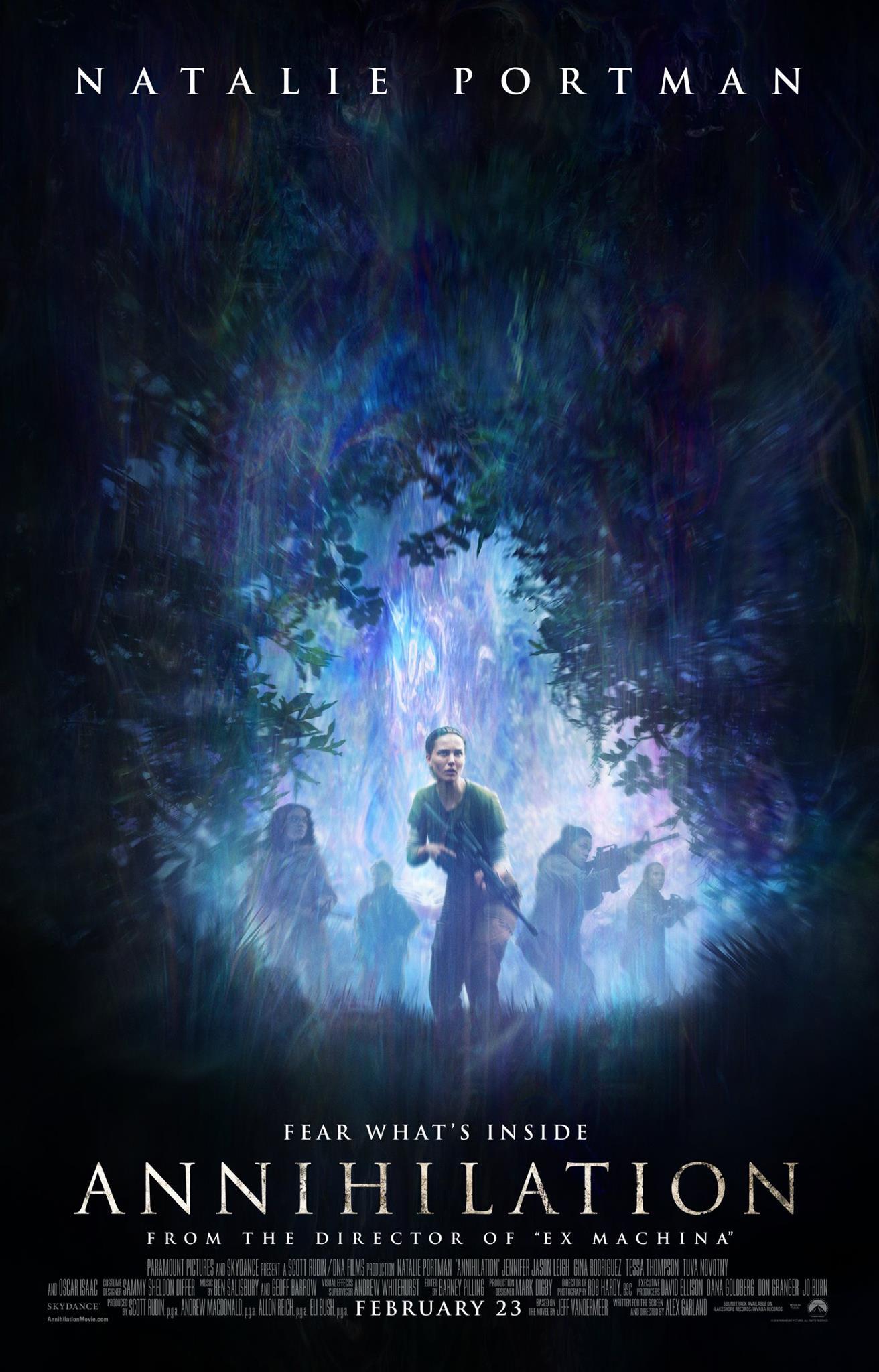Film Review: Annihilation (2018)



Annihilation is being compared far and wide to Andrei Tarkovsky’s 1979 sci-fi masterpiece Stalker, and for good reason. The comparisons are apt (I won’t go into them much, you should just go out and see Stalker and judge for yourself), but they’re missing something. Annihilation isn’t so much “Tarkovskian” as it is “Lovecraftian”—it looks out instead of in, hinting at the true and horrible nature of the universe, and the insanity that inevitably follows. Where Tarkovsky used film to analyze and critique art, philosophy, and human nature, Lovecraft used writing to extol the pointlessness of it all. The universe was a vast and terrible place, indifferent to human suffering or joy. Its uncaring truths cracked the mind of any person who even glimpsed behind the curtain. That’s the sort of story Annihilation is telling—one of “cosmic indifference.”

Lena (Natalie Portman), a biologist and ex-army soldier, finds herself at a research station known as “Area X.” She’s to be part of a team which is led by a psychologist (Jennifer Jason Leigh) and includes a physicist (Tessa Thompson), a geologist (Tuva Thompson), and a paramedic (Gina Rodriguez). They are to enter “The Shimmer”—an ever-growing electromagnetically modified piece of land affected by a meteor strike. This land, incidentally, shares more than a few similarities with Tarkovksy’s “Zone” and Lovecraft’s “Blasted Heath” from his 1927 story The Colour out of Space, but that’s beside the point. Inside, time and the laws of nature are altered. Mutations are everywhere, with plant and animal life being visibly affected from the onset. The minds of the explorers are also affected, as time will show.

They are to reach “The Lighthouse”—the point at which the meteor struck—bringing back any evidence, specimens, and survivors they can find (they are not the first team to enter The Shimmer). It is in these discoveries of past excursions that sanity begins to slip. Some members of the team cope better than others, but they all lose themselves in some way or another eventually. They simply can’t handle the curtain being pulled back to reveal that their truths are not necessarily shared by the rest of the universe.

Annihilation is the most Lovecraftian film since John Carpenter’s The Thing (1982), which makes this critic one happy nerd, but that’s not all that’s on writer/director Alex Garland’s mind. It’s also about damaged people and the lengths they’ll go to fix themselves—or more accurately, the lengths they’ll go to avoid being fixed. That these women are willing to walk into a hostile alien land in which no one has previously returned is telling of their states of mind. What are they running from, and can they be redeemed? The former is revealed in little snippets of flashbacks from Lena that are cleverly and effectively placed throughout the film. We catch little hints of her past and motivations but aren’t given the whole story, leaving it open for interpretation. They’re presented in such matter of fact way that they just are. There’s no room for beating around the bush. It serves as exposition, but not quite. You still have to work for it—and you still have to analyze it for yourself.

It’s an unsettling movie. The scenes presented are irrational and unnatural. Beautiful, but somehow off. In most sci-fi or horror films, the “other” is depicted as something alien yet recognizable, still within the realm or our understanding. While the horrors present in Annihilation still fall under this description, for the most part, it has a quality that’s unique and more alien than usual. You never get comfortable in The Shimmer—the film won’t let you. It has a way of keeping you on edge, of keeping what is clearly Earth so eerily alien. The score helps, as does the acting, but there’s something more. Maybe it’s the way things move, the off-kilter geometry, or strange references to past human atrocities and religious rituals. A second viewing may reveal more for me, but I suspect I’ll wind up with more to think about instead. That’s a good thing.

I freely admit that Annihilation may not be everyone’s cup of tea. Please don’t let that stop you from seeing it. You don’t have to be a fan of weird sci-fi or H.P. Lovecraft to identify and connect with the characters. The Shimmer and what lies within it may be alien, but there are some human connections too. The universe may be indifferent, but Annihilation is full of beauty and the capacity for change within one’s self—albeit not in the usual sense.
